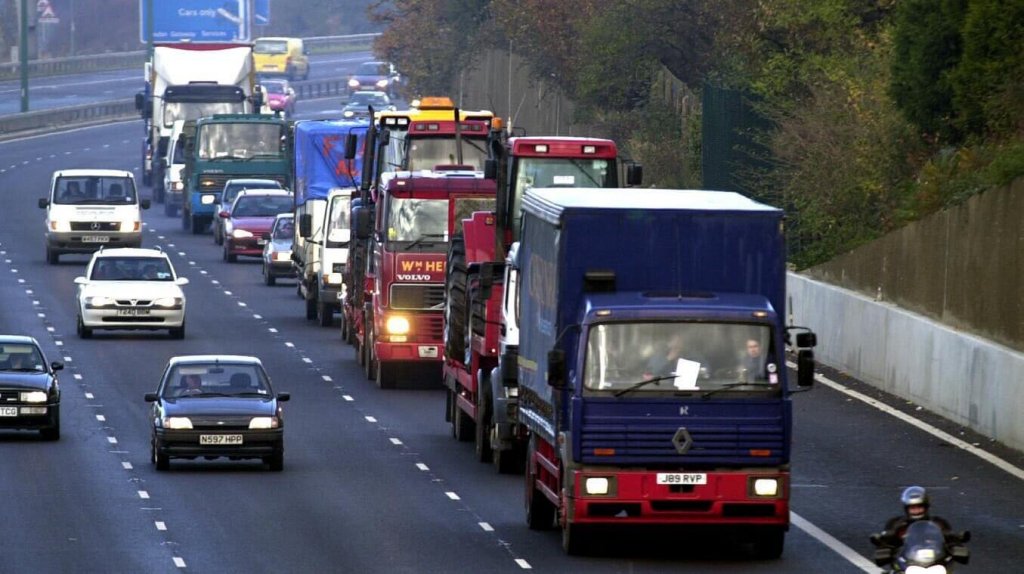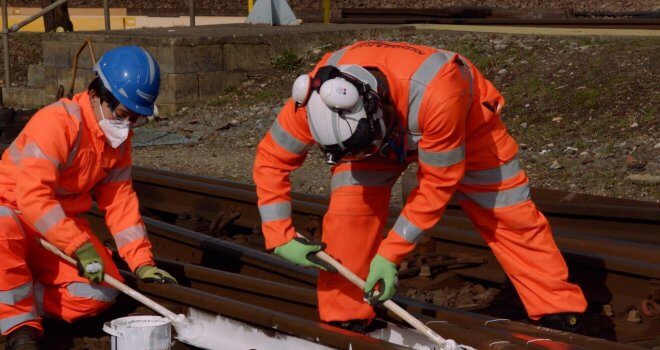GDP Growth Slows To A Trickle As ‘Pingdemic’ And Materials Shortages Bite

UK economic growth slowed in July even as many businesses were allowed to open fully for the first time in months.
The Office for National Statistics (ONS) said that gross domestic product (GDP) rose by 0.1% in July, a slowdown from 1% growth in June.
Companies had faced problems with the so-called “pingdemic” and shortages of materials – especially in the construction sector.
Retailers saw declines, while lawyers also took a hit because of the tapering-off of the stamp duty holiday.
“After many months during which the economy grew strongly, making up much of the lost ground from the pandemic, there was little growth overall in July,” said ONS deputy national statistician for economic statistics Jonathan Athow.
GDP grew 0.1% in July and is now 2.1% below its pre-pandemic peak:
▪️ services showed 0.0% growth (2.1% below peak)▪️ production grew 1.2% (2.1% below peak)▪️ construction fell 1.6% (1.8% below peak)
➡️ https://t.co/hMWVf8oScb pic.twitter.com/EyTHxBfTeW
— Office for National Statistics (ONS) (@ONS) September 10, 2021
“Oil and gas provided the strongest boost, having partially bounced back after summer maintenance. Car production also continued to recover from recent component shortages.”
He added: “The service sector saw no growth overall with growth in IT, financial services and outdoor events – which could operate more fully in July – offsetting large falls in retail and law firms.”
“Meanwhile, rising costs and shortages of raw materials pegged back the construction sector again.”
The construction sector saw output drop 1.6% in July, the ONS said, while retailers saw a 2.5% fall.
Commenting on today’s GDP figures, @jathers_ONS said: (1/4) pic.twitter.com/K95fSGAfVu
— Office for National Statistics (ONS) (@ONS) September 10, 2021
One positive sign came from the arts, entertainment and recreation sector, which was boosted by 9% after restrictions on social distancing were lifted from July 19.
Economists had expected a slowdown in GDP growth in July, although this was forecast at 0.5%, according to an average of economist predictions compiled by Pantheon Macroeconomics.
The figures put a dent in the recovery from the pandemic. GDP is still 2.1% behind its February 2020 level, just before the pandemic hit.
Alpesh Paleja, lead economist Confederation of British Industry, said: “The UK’s economic recovery continued in July against the backdrop of the ‘pingdemic’ gathering pace.
Total underlying goods exports fell by £0.3bn in July; EU exports fell £0.9bn while exports to non-EU countries grew £0.7bn.
Total underlying goods imports fell by £0.1bn, entirely due to a £0.1bn fall in imports from the EU https://t.co/65eYtL9CRm pic.twitter.com/vtFVoq5sEd
— Office for National Statistics (ONS) (@ONS) September 10, 2021
“Labour shortages and supply chain disruption have continued since, and are likely to have taken the edge off growth as we head into autumn.
“Businesses hope the bulk of supply disruption will prove temporary, but firms are not confident that all shortages will fade any time soon.
“To help ease these pressures, temporary, targeted interventions are needed to enable businesses to keep their doors open – for instance, placing HGV drivers on the Shortage Occupation List could make a real difference.
“Longer-term, both business and Government must invest in reskilling and training, particularly in areas that support meeting future demand.”
The ONS also reported on the UK’s trade figures.
The trade deficit – the difference between important and exports – widened by £1.5 billion to £4.9 billion in July, it said.
Imports of goods rose by 5.8% to £6.3 billion in the three months to July, while exports increased 5.7% to £4.5 billion.
Imports of goods fell from EU countries, driven especially by clothing and footwear imports, the ONS said.
Ana Boata, head of macroeconomic research at trade credit insurer Euler Hermes, said: “UK exporters are losing their competitive advantage.
“Since its peak in 2017, financial services – the UK’s biggest exporting sector – has steadily lost its market share.
“The UK is the only one of the 10 biggest countries to see this happen, with Brexit exacerbating the decline.”




